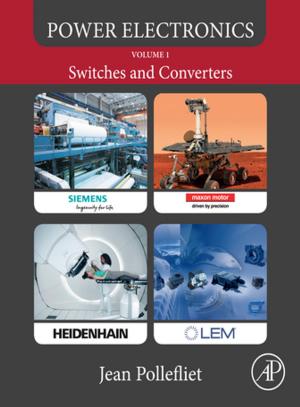Lead-Acid Batteries for Future Automobiles
Nonfiction, Science & Nature, Technology, Engineering, Automotive, Power Resources| Author: | ISBN: | 9780444637031 | |
| Publisher: | Elsevier Science | Publication: | February 21, 2017 |
| Imprint: | Elsevier | Language: | English |
| Author: | |
| ISBN: | 9780444637031 |
| Publisher: | Elsevier Science |
| Publication: | February 21, 2017 |
| Imprint: | Elsevier |
| Language: | English |
Lead-Acid Batteries for Future Automobiles provides an overview on the innovations that were recently introduced in automotive lead-acid batteries and other aspects of current research. Innovative concepts are presented, some of which aim to make lead-acid technology a candidate for higher levels of powertrain hybridization, namely 48-volt mild or high-volt full hybrids.
Lead-acid batteries continue to dominate the market as storage devices for automotive starting and power supply systems, but are facing competition from alternative storage technologies and being challenged by new application requirements, particularly related to new electric vehicle functions and powertrain electrification.
- Presents an overview of development trends for future automobiles and the demands that they place on the battery
- Describes how to adapt LABs for use in micro and mild hybrid EVs via collector construction and materials, via carbon additives, via new cell construction (bipolar), and via LAB hybrids with Li-ion and supercap systems
- System integration of LABs into vehicle power-supply and hybridization concepts
- Short description of competitive battery technologies
Lead-Acid Batteries for Future Automobiles provides an overview on the innovations that were recently introduced in automotive lead-acid batteries and other aspects of current research. Innovative concepts are presented, some of which aim to make lead-acid technology a candidate for higher levels of powertrain hybridization, namely 48-volt mild or high-volt full hybrids.
Lead-acid batteries continue to dominate the market as storage devices for automotive starting and power supply systems, but are facing competition from alternative storage technologies and being challenged by new application requirements, particularly related to new electric vehicle functions and powertrain electrification.
- Presents an overview of development trends for future automobiles and the demands that they place on the battery
- Describes how to adapt LABs for use in micro and mild hybrid EVs via collector construction and materials, via carbon additives, via new cell construction (bipolar), and via LAB hybrids with Li-ion and supercap systems
- System integration of LABs into vehicle power-supply and hybridization concepts
- Short description of competitive battery technologies















